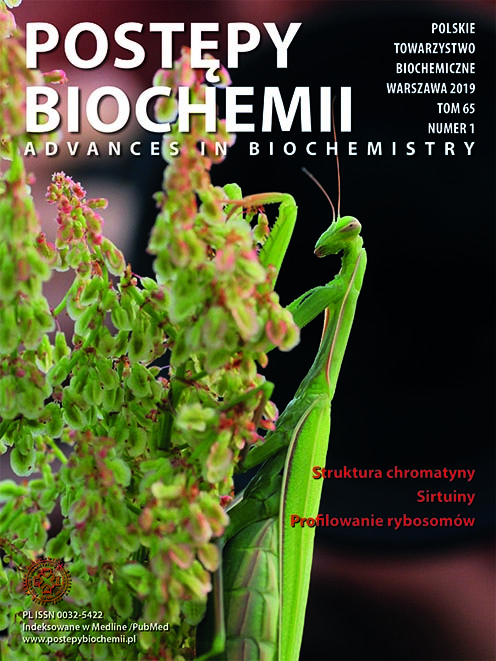Sirtuins and their role in metabolism regulation
DOI:
https://doi.org/10.18388/pb.2019_254Abstract
Sirtuins are â in mammals - a family of seven enzymes (sirtuin 1-7) involved in post-translational modification of proteins (mainly deacetylation, but also: polyADP-ribosylation, demalonylation or lipoamidation), and thus â in the regulation of many metabolic processes. The activity of all sirtuins depends on the availability of NAD+. However, the function of individual isoforms is different, even mutually antagonistic. In this article the role of sirtuins in the regulation of glucose and lipid metabolism and in DNA repair mechanisms is described in detail. The significance of these enzymes in diseases pathogenesis, with particular emphasis on diabetes and cancer, is also discussed, indicating the possible therapeutic use of sirtuin activity modulators.
Downloads
Published
Issue
Section
License
All journal contents are distributed under the Creative Commons Attribution-ShareAlike 4.0 International (CC BY-SA 4.0) license. Everybody may use the content following terms: Attribution — You must give appropriate credit, provide a link to the license, and indicate if changes were made, ShareAlike — If you remix, transform, or build upon the material, you must distribute your contributions under the same license as the original. There are no additional restrictions — You may not apply legal terms or technological measures that legally restrict others from doing anything the license permits.
Copyright for all published papers © stays with the authors.
Copyright for the journal: © Polish Biochemical Society.




